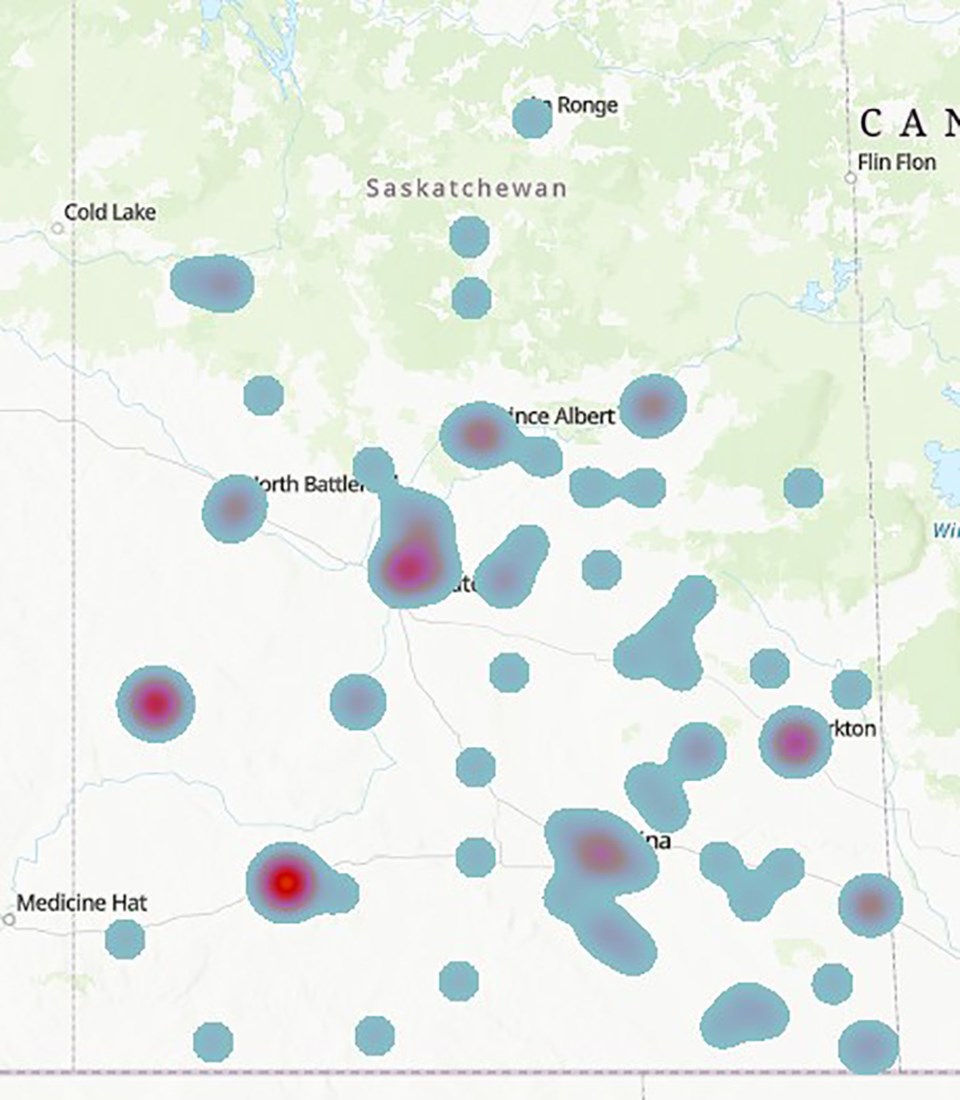SASKATCHEWAN – There is about a 200 per cent increase in extortion cases already this year with most of them being what is known as sextortion.
From January to June this year, Saskatchewan RCMP have received 105 reports of extortion, compared with 36 reports over the same period last year.
“A 200 per cent increase is alarming – due to the sensitive nature of these extortions, we believe these files are likely under-reported to police,” said Monica Deters, a crime analyst with Saskatchewan RCMP’s Crime Prevention/Crime Reduction unit.
“Saskatchewan RCMP proactively monitors crime trends and this allows us to inform the public when we see an emerging issue. Based on the statistics we’re seeing, we’re letting Saskatchewan residents know these extortions are happening and that should be taking steps to protect themselves from these types of crime.”
The reports are coming from communities throughout Saskatchewan RCMP jurisdiction.

RCMP say in sextortion cases, typically, the victim meets someone online on common platforms like social media, gaming or dating sites. Communication may move to other methods like texting, chat sites or messaging. The suspect persuades the victim to send a nude photo or video, then threatens to send it to the victim’s contacts or post it publicly, unless payment is made.
Even if the victim hasn’t sent a photo or video, the scammers may alter photos to make it look like they did.
Another reported scam involves a suspect telling a victim they’ve hacked their computer/phone or are monitoring their online activities, say RCMP. The suspect threatens to send details to the victim’s contacts, or post it online, unless payment is made. Even if the victim’s online activity doesn’t include anything compromising, the suspect will sometimes threaten to make it look as if they have.
These extortions can be extremely traumatic for victims. Some victims have lost money by paying the scammers by gift cards, e-transfers or cryptocurrency. Even if no money is lost, becoming a victim to such a crime can be immensely stressful and traumatic.
Police offer these tips:
- You never really know who you’re talking to online. Be aware that some scammers pretend to be other people to earn your trust.
- Don’t send intimate photos or videos. As soon as they are sent to someone or are posted online, you lose control of them.
- Monitor your child’s online activity, including their social media use and search history. Have frequent conversations about online safety.
If you are a victim:
- Immediately stop talking to the suspect.
- Deactivate (don’t delete) any social media accounts you are using to communicate with them.
- Keep any record of conversations with the suspect.
- Don’t send money or gift cards.
- Contact police.
For more information on sextortion, visit:
To report an incident, contact your local police service. Dial 310-RCMP to reach your local RCMP detachment. Information can also be submitted anonymously by contacting Saskatchewan Crime Stoppers at 1-800-222-TIPS (8477) or .
— for more from Crime, Cops and Court.




